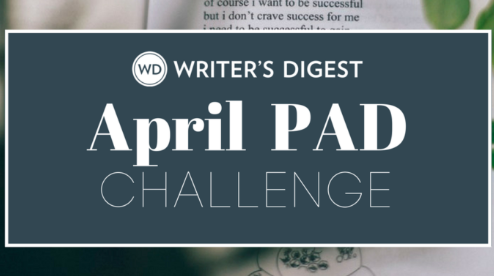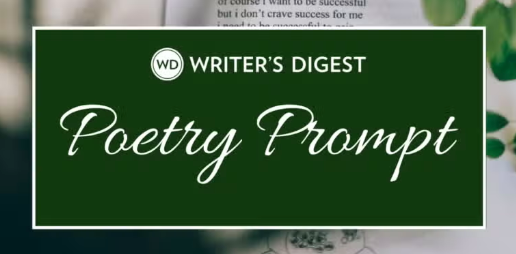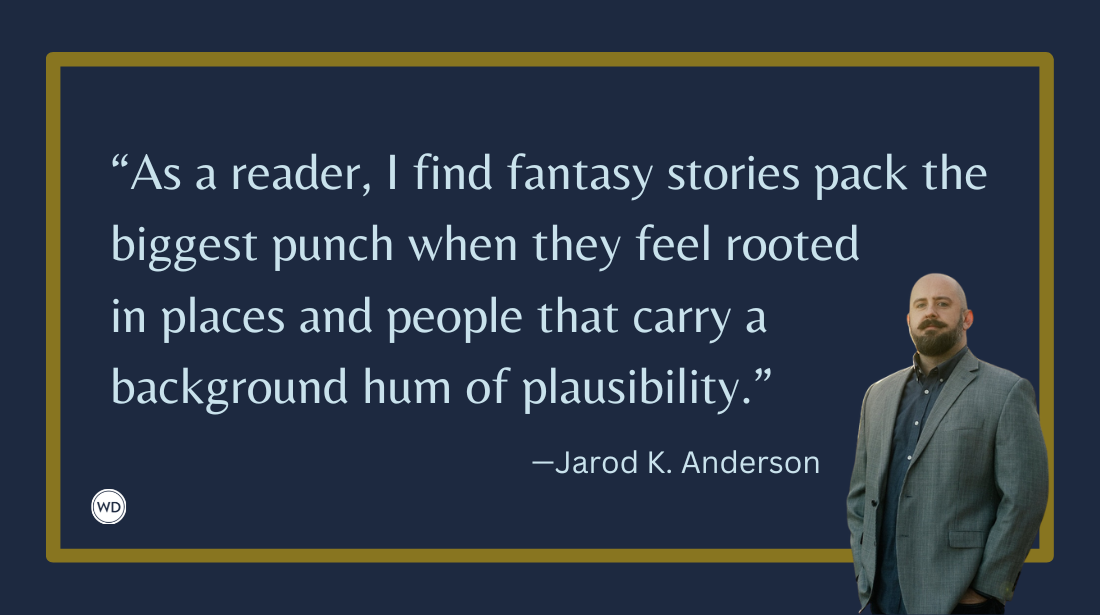Interview With Poet Kristina Marie Darling
Kristina Marie Darling is the author of three full-length poetry collections: Night Songs (Gold Wake Press); Compendium (Cow Heavy Books); and The Body is a Little Gilded Cage: A Story…
Kristina Marie Darling is the author of three full-length poetry collections: Night Songs (Gold Wake Press); Compendium (Cow Heavy Books); and The Body is a Little Gilded Cage: A Story in Letters & Fragments (Gold Wake Press). She has been awarded fellowships from Yaddo, the Ragdale Foundation, and the Virginia Center for the Creative Arts, as well as grants from the Vermont Studio Center and the Elizabeth George Foundation. She is also the editor of a forthcoming anthology, narrative (dis)continuities: prose experiments by younger american writers (Moira Books).
If her name sounds familiar, it's because Darling was interviewed previously for her collection Night Songs on Poetic Asides. After spending a bit of time recently on the prose poem, an interview with her only seems fitting. After all, she's the editor of a prose poem anthology and a portion of her recent collection, Compendium, is comprised of prose poems.
(NOTE:Update on Compendium. It's no longer in print with Cow Heavy Books, but it will be re-issued in a new edition through a poetry press called Vardaman Books.)
Here's one I really enjoy:
The Homage, by Kristina Marie Darling
It was only after the soiree, with its faint music and array of red velvet chairs, that Madeleine began assembling the homage. "You must remember," she explained to the connoisseur, "one should not pass judgment until the instruments have been properly tuned." That was when he examined the silk ribbons hanging above every doorway. Their edges worn from celebration after celebration. And once Madeleine's song began, with its massive harp and tiny silver bells, the whole room seemed to darken. Between the two of them, a disconcerting stillness. Her music drifting farther into the cold blue arms of that evening.
*****
What are you currently up to?
This fall, I started working toward a Ph.D. in Poetics at SUNY-Buffalo, and I'm very excited to be part of the program there. I've also been hard at work promoting my third book of poetry, The Body is a Little Gilded Cage: A Story in Letters & Fragments, which was just released by Gold Wake Press. Last but not least, I started a new book project, a hybrid text called Melancholia (An Essay). The manuscript draws its inspiration from depictions of melancholy in Romantic literature, as well as philosopher Julia Kristeva's writings on personal loss.
Compendium is such a different type of collection. How did you come up with the concept?
Compendium started as a collaboration with a visual artist, Max Avi Kaplan, who I met at the Vermont Studio Center in May 2009. We kept in touch and eventually decided to start a project together. From the beginning, Max and I were both fascinated by Victorian material culture, particularly the cultural rituals surrounding mourning during this period. We agreed that Max would create art objects and I'd write poems in response to them. While we both shared similar aesthetic interests, the collaboration was wonderful because I was exposed to ideas, images, and texts that I would have never otherwise encountered. Most of the poems in Compendium started as reactions to Max's work, or to other images from museums, Victorian costume collections, and fashion etiquette books that he suggested to me. With that said, I found collaboration to be an incredibly rewarding experience, one that I'd recommend to any writer. It's a great way to expand your horizons and experiment.
Related to the previous question, I imagine it may have been difficult (or maybe not) to get a publisher to understand this different approach. How did you find a publisher for Compendium?
You're absolutely right that it can be difficult to find outlets for more conceptual poetry. I was very lucky in my search for a publisher for Compendium. When I sent out my first round of submissions, one of the presses, J.A. Tyler's Mud Luscious Press, rejected the manuscript but forwarded it on to Cow Heavy Books. At first, I was a little disheartened that my submission had been declined, but Cow Heavy Books ended up being a perfect fit.
One of the things I learned from this experience was to be open to suggestions. Some writers get their heart set on a particular press they want to work with, and they don't look into other options. But I'm definitely glad that I took J.A. Tyler's advice. Since Cow Heavy Books is a fairly new press, I would have never known to submit there, but I had a wonderful experience working with them. In terms of the book itself, the production quality and attention to detail were phenomenal.
Some of the poems in this collection are prose poems. Could you share what you like about working with prose poetry?
I love working with prose forms because readers bring so many preconceived ideas to them. When most people see prose, they expect a linear narrative and a clear-cut progression from one idea to the next. They also anticipate a more passive role as readers. And I find that it can be great fun to work against these expectations. For me, prose poetry presents a unique opportunity to question the assumptions that we bring to literary texts, as well as the limitations that we impose on them before we've even begun reading.
In your biography, it says you’re about to start pursuing your doctorate in poetics. I know a doctorate in poetics isn’t for everybody, but what do you hope to gain from it?
I hope to gain practical experience in teaching, which will definitely be helpful for finding an academic job. But perhaps more importantly, I'd like to become a better reader of poetry. I've learned almost everything I know about the writing process from reading other people's work. For me, five years of reading and thinking about literature presents a fantastic opportunity for my own poems. I anticipate my creative work evolving and changing as I'm exposed to literary texts that I've never encountered before.
You’ve earned quite a few fellowships and grants as a poet. Do you have any grant-writing tips for other poets?
One strategy that I find helpful is to read successful applications. When I applied for a residency at the Santa Fe Art Institute, for instance, they required an Artist's Statement. I had never written one before, and didn't really know how to get started. But after a quick Google search, I found that many sample artist statements were freely available online. These were incredibly helpful for knowing what selection committees expect. I find that the same is often true for grant and fellowship applications. It's definitely worth one's time to seek out examples of project proposals, biographical statements, and C.V.s that have proven successful in past application cycles. These can be very useful for organizing and presenting one's ideas effectively.
Who (or what) are you currently reading?
At the moment, I'm working on an essay-review of some fable-based prose poems. I'm also enjoying Jena Osman's The Network and Susan Steinberg's The End of Free Love.
If you could share only one piece of advice for other poets, what would it be?
Shoot for the stars, but if that doesn't work out, don't be afraid to start with small things. The first journal that published my work was printed on someone's personal computer and stapled crooked. And even though my publication credits were fairly modest at first, I went on to find many wonderful opportunities for my writing. For new writers, it's important to start building an audience any way that you can. It's great if you can do this by getting published in The New Yorker, but for the rest of us, there are many, many other avenues available.
*****
To learn more about Cow Heavy Books, visit www.cowheavybooks.com
*****
If you're a poet or publisher interested in an interview on Poetic Asides, just shoot me an e-mail at robert.brewer@fwmedia.com with the subject line: Poetic Asides Interview. Please include a note about your publications, projects you're working on (or have recently released), etc. Simple as that.
*****
I can't recommend Sage Cohen's Writing the Life Poetic enough. It's filled with instruction, inspiration, and poetry. It's a perfect combination.






